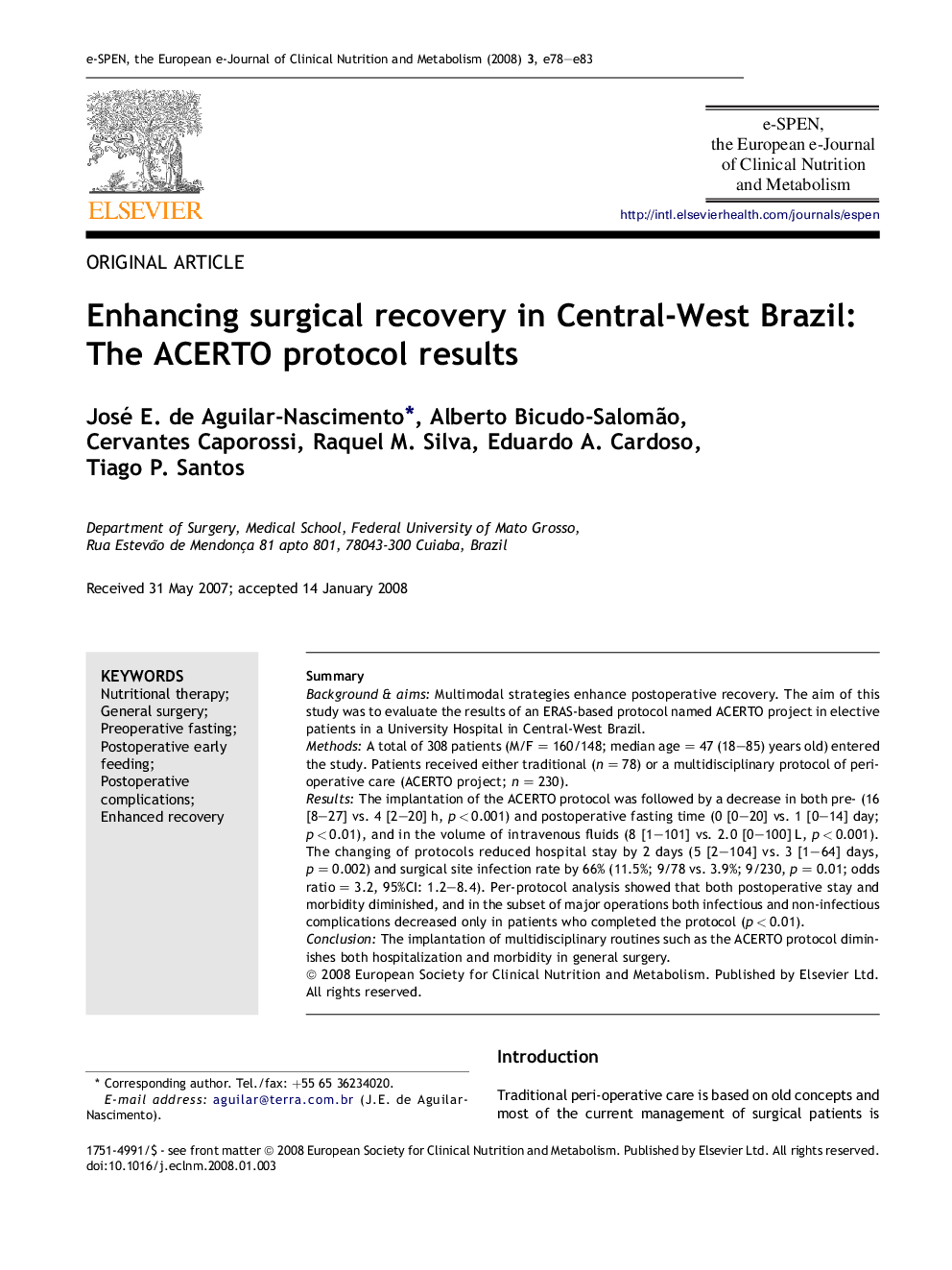| Article ID | Journal | Published Year | Pages | File Type |
|---|---|---|---|---|
| 2686508 | e-SPEN, the European e-Journal of Clinical Nutrition and Metabolism | 2008 | 6 Pages |
SummaryBackground & aimsMultimodal strategies enhance postoperative recovery. The aim of this study was to evaluate the results of an ERAS-based protocol named ACERTO project in elective patients in a University Hospital in Central-West Brazil.MethodsA total of 308 patients (M/F = 160/148; median age = 47 (18–85) years old) entered the study. Patients received either traditional (n = 78) or a multidisciplinary protocol of peri-operative care (ACERTO project; n = 230).ResultsThe implantation of the ACERTO protocol was followed by a decrease in both pre- (16 [8–27] vs. 4 [2–20] h, p < 0.001) and postoperative fasting time (0 [0–20] vs. 1 [0–14] day; p < 0.01), and in the volume of intravenous fluids (8 [1–101] vs. 2.0 [0–100] L, p < 0.001). The changing of protocols reduced hospital stay by 2 days (5 [2–104] vs. 3 [1–64] days, p = 0.002) and surgical site infection rate by 66% (11.5%; 9/78 vs. 3.9%; 9/230, p = 0.01; odds ratio = 3.2, 95%CI: 1.2–8.4). Per-protocol analysis showed that both postoperative stay and morbidity diminished, and in the subset of major operations both infectious and non-infectious complications decreased only in patients who completed the protocol (p < 0.01).ConclusionThe implantation of multidisciplinary routines such as the ACERTO protocol diminishes both hospitalization and morbidity in general surgery.
